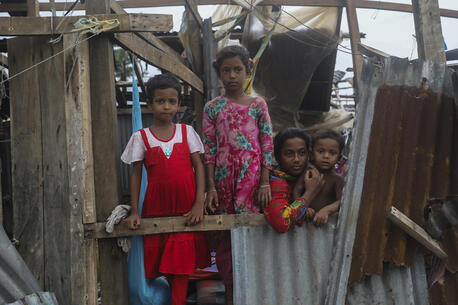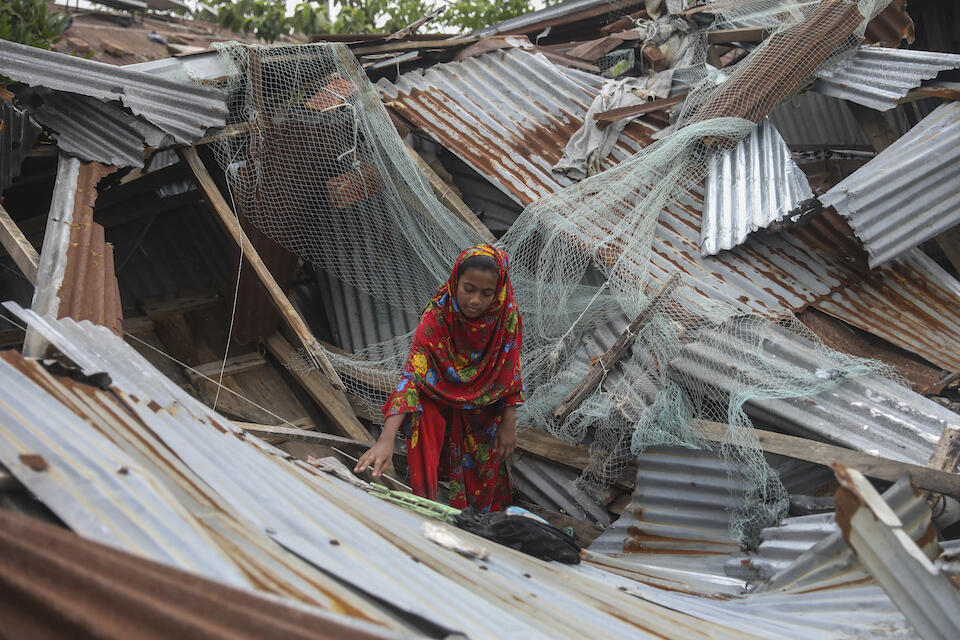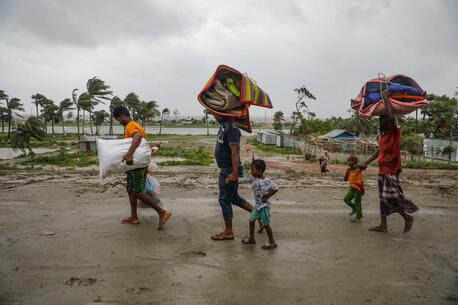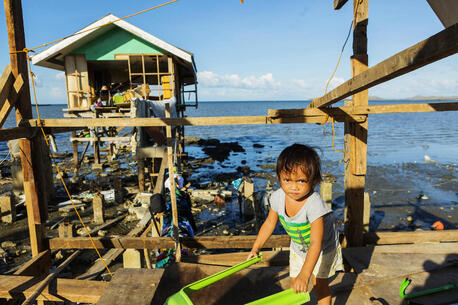
UNICEF in Bangladesh: Helping Communities Slammed by Cyclone Remal
In the aftermath of a destructive storm, UNICEF is mobilizing resources and coordinating with local partners to meet urgent needs of children, women and people with disabilities in affected areas.
Cyclone response in Bangladesh gets underway, but more support is needed
UNICEF is helping communities pick up the pieces in the wake of Cyclone Remal, which slammed southern Bangladesh and India's West Bengal state in the early morning hours of May 27 local time.
The storm surge flooded several coastal districts. Sixteen people died and at least 150,000 houses in Bangladesh were partly damaged or destroyed as wind speeds approached 70 mph. The heavy rainfall left 27,000 Rohingya refugees sheltering in camps at risk of landslides.
Water sources are at high risk of contamination and associated outbreaks of waterborne diseases. Thousands of schools closed to serve as shelters for evacuees.
UNICEF is helping assess needs to guide relief efforts in affected areas in Bangladesh's Khulna, Barisal and Chattogram divisions. Responders have already distributed water purification tablets, jerrycans, water buckets and hygiene kits with support from UNICEF.
More than 1,000 pregnant women have received multipurpose cash transfers to help them access critical goods and services for themselves and for their children. In Cox’s Bazar, 910 individuals — including over 700 children — have been provided with psychological first aid and/or psychosocial support.
Emergency supplies from 35 warehouses countrywide have been deployed to support 156,000 people with lifesaving interventions. More than 1,500 medical teams are working around the clock to keep health services going.
But more support is needed. "Critical funding gaps remain across all sectors to meet the immediate needs of girls, women and persons with disabilities,” said Sheldon Yett, UNICEF's Representative in Bangladesh.

To counter heightened risks to children's safety, UNICEF is working with the Ministry of Women and Children Affairs to support community-led discussions at 358 child protection community hubs on topics like how to prevent drowning and family separation and how to mitigate risks of gender-based violence and violence against children.
With an estimated 3.2 million children living in the affected areas, “the priority is to protect lives and well-being,” Yett said. “We remain committed to standing by the people of Bangladesh through this challenging time, and providing all necessary assistance to help them survive and recover from the aftermath of Cyclone Remal.”
UNICEF is also coordinating with state government counterparts in India's cyclone-affected areas to address child protection, public health and other emergency needs.
UNICEF responds to hundreds of emergencies every year, delivering lifesaving support and protection to children in need. Your unrestricted donation can help ensure a swift, effective response. Support UNICEF. Donate today.
HOW TO HELP
There are many ways to make a difference
War, famine, poverty, natural disasters — threats to the world's children keep coming. But UNICEF won't stop working to keep children healthy and safe.
UNICEF works in over 190 countries and territories — more places than any other children's organization. UNICEF has the world's largest humanitarian warehouse and, when disaster strikes, can get supplies almost anywhere within 72 hours. Constantly innovating, always advocating for a better world for children, UNICEF works to ensure that every child can grow up healthy, educated, protected and respected.
Would you like to help give all children the opportunity to reach their full potential? There are many ways to get involved.




